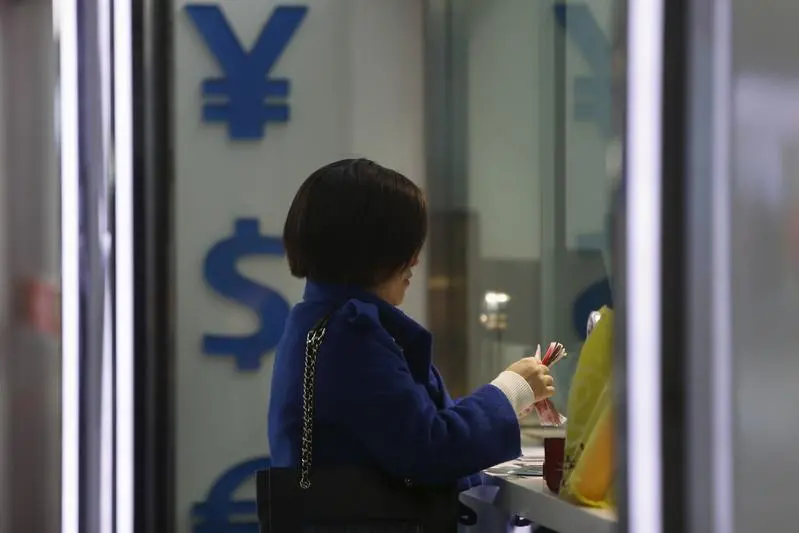PHOTO
HONG KONG - China is gingerly blurring its currency red line. Officials have hinted that they may not defend the rate of 7 yuan to the dollar, the previous tacit limit. But regulators are also threatening short sellers with big losses. With more U.S. tariffs in the pipeline, Beijing is wise to reset expectations, but keep them vague.
People’s Bank of China Governor Yi Gang told Bloomberg last week that when it comes to the renminbi, he didn’t think that “any number is more important than other numbers”. That comment came shortly after Zhou Xiaochuan, an influential former PBOC governor, similarly pooh-poohed the magic integer at a closed-door roundtable.
Despite protestations to the contrary, Chinese financial regulators still keep a hand on markets. Knowing this, when investors perceive officials retreating across lines in the sand, selloffs can ensue, disrupting wider economic sentiment on the way. In 2015, for example, a currency devaluation by the PBOC triggered massive capital outflows and forced officials to burn $1 trillion of hard currency reserves to stem the rout.
In 2018, as the currency softened, the central bank implemented tweaks to its guidance mechanism that helped stem the slide; in November traders told Reuters that large state banks had dumped dollars on the market when the exchange rate touched 6.97. As recently as last month, a source told Reuters that the government would “certainly” defend seven. The currency has remained roughly flat since mid-May.
But if U.S. President Donald Trump slaps duties of up to 25% on a further $300 billion of Chinese goods – as his administration has threatened to do – the yuan might need to depreciate more than 10% to fully offset the impact on exports to the United States, according to a rough Breakingviews calculation. That would mean the currency blows past 7.5 yuan per dollar, a level not seen since 2007. Actual depreciation would probably be more modest, but would still have big impact on asset prices and investment flows.
The decision to signal less defensiveness makes sense. Better to reset expectations now, rather than appear to be caught off-guard by sudden weakness. The risk for policymakers, of course, is that yuan bears make money after all.
CONTEXT NEWS
- People’s Bank of China Governor Yi Gang said on June 7 that “a little flexibility” in the yuan is good for the economy, Bloomberg reported. “I don’t think along this mathematical scale, any number is more important than other numbers”, he said.
- Former PBOC Governor Zhou Xiaochuan said on May 27 that viewing 7 yuan to the dollar as a bottom line may be an “overreaction”, Chinese magazine Caixin reported. “From the perspective of fluctuations, integers may lead to misconceptions”, the publication quoted Zhou as saying at a closed-door roundtable.
(Editing by Pete Sweeney and Katrina Hamlin)
© Reuters News 2019





















